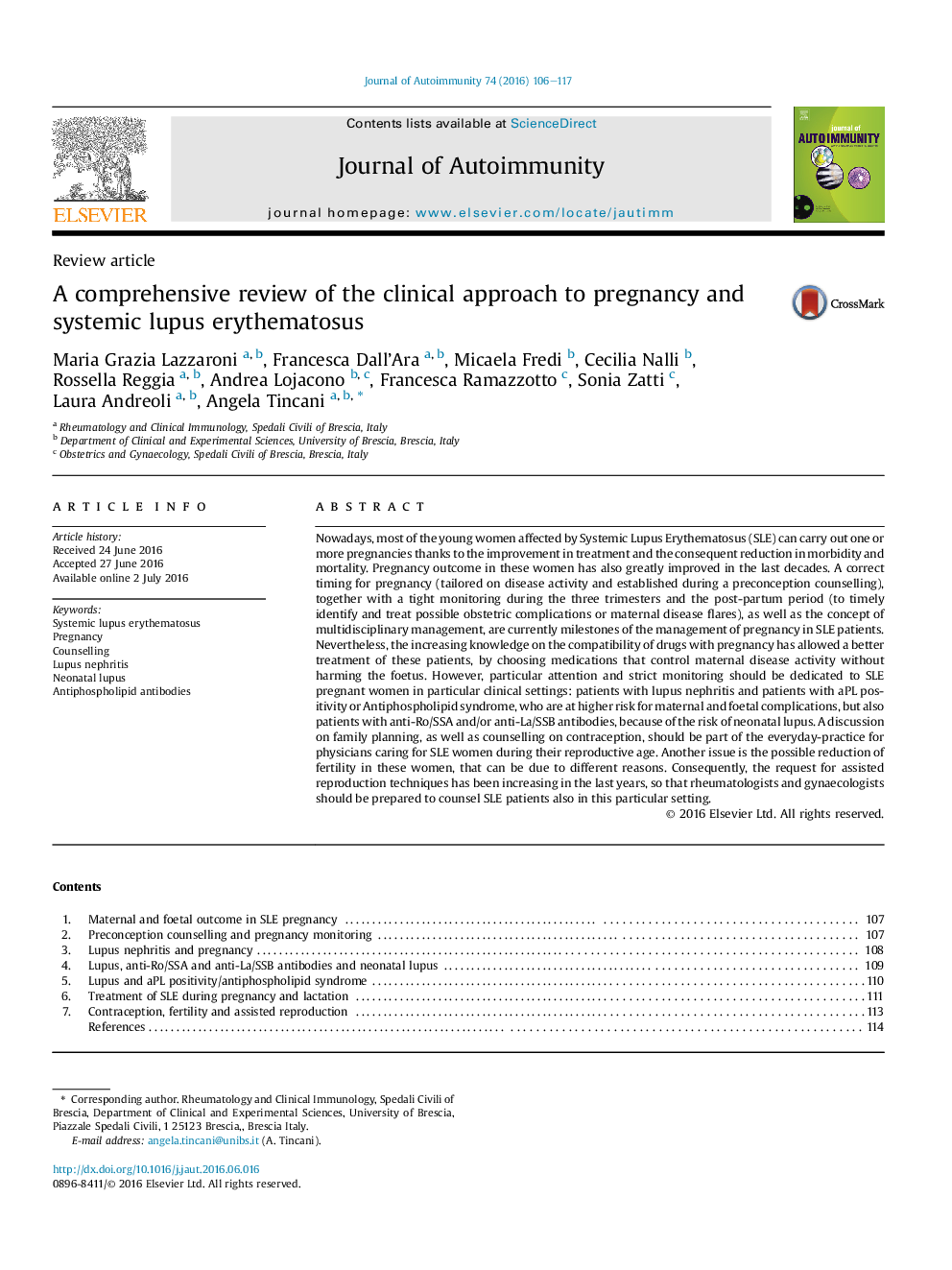| Article ID | Journal | Published Year | Pages | File Type |
|---|---|---|---|---|
| 5667901 | Journal of Autoimmunity | 2016 | 12 Pages |
â¢Preconception counselling is important to tailor the correct timing for pregnancy.â¢Tight monitoring of pregnancy is crucial to timely identify different complications.â¢Patients with LN, anti-Ro/-La antibodies and aPL/APS require special management.â¢Contraception issues should be discussed with every SLE patient in reproductive age.â¢ARTs in SLE pregnant women are not contraindicated, but require special monitoring.
Nowadays, most of the young women affected by Systemic Lupus Erythematosus (SLE) can carry out one or more pregnancies thanks to the improvement in treatment and the consequent reduction in morbidity and mortality. Pregnancy outcome in these women has also greatly improved in the last decades. A correct timing for pregnancy (tailored on disease activity and established during a preconception counselling), together with a tight monitoring during the three trimesters and the post-partum period (to timely identify and treat possible obstetric complications or maternal disease flares), as well as the concept of multidisciplinary management, are currently milestones of the management of pregnancy in SLE patients. Nevertheless, the increasing knowledge on the compatibility of drugs with pregnancy has allowed a better treatment of these patients, by choosing medications that control maternal disease activity without harming the foetus. However, particular attention and strict monitoring should be dedicated to SLE pregnant women in particular clinical settings: patients with lupus nephritis and patients with aPL positivity or Antiphospholipid syndrome, who are at higher risk for maternal and foetal complications, but also patients with anti-Ro/SSA and/or anti-La/SSB antibodies, because of the risk of neonatal lupus. A discussion on family planning, as well as counselling on contraception, should be part of the everyday-practice for physicians caring for SLE women during their reproductive age. Another issue is the possible reduction of fertility in these women, that can be due to different reasons. Consequently, the request for assisted reproduction techniques has been increasing in the last years, so that rheumatologists and gynaecologists should be prepared to counsel SLE patients also in this particular setting.
